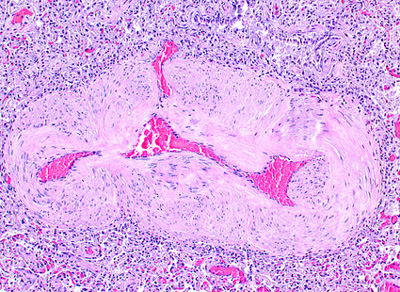FDA approves Uptravi for pulmonary arterial hypertension
Posted: 23 December 2015 | | No comments yet
Uptravi (selexipag) acts by relaxing muscles in the walls of blood vessels to dilate (open) blood vessels and decrease the elevated pressure in the vessels supplying blood to the lungs…


The US Food and Drug Administration (FDA) has approved Actelion’s Uptravi (selexipag) for the treatment of pulmonary arterial hypertension.


Uptravi belongs to a class of drugs called oral IP prostacyclin receptor agonists. The drug acts by relaxing muscles in the walls of blood vessels to dilate (open) blood vessels and decrease the elevated pressure in the vessels supplying blood to the lungs.
Uptravi is indicated for the treatment of pulmonary arterial hypertension to delay disease progression and reduce the risk of hospitalisation.
“Uptravi offers an additional treatment option for patients with pulmonary arterial hypertension,” said Ellis Unger, M.D., director of the Office of Drug Evaluation I in the FDA’s Centre for Drug Evaluation and Research.
Uptravi shown to reduce hospitalisation for pulmonary arterial hypertension
Uptravi’s safety and efficacy were established in a long-term clinical trial of 1,156 participants with pulmonary arterial hypertension. Uptravi was shown to be effective in reducing hospitalisation for pulmonary arterial hypertension and reducing the risks of disease progression compared to placebo. Participants were exposed to Uptravi in this trial for a median duration of 1.4 years.
Jean-Paul Clozel, MD and Chief Executive Officer of Actelion, commented: “Today’s FDA approval of Uptravi is another major landmark for Actelion. Together with our partners at Nippon Shinyaku we are proud to be able to offer an outstanding oral therapy targeting the prostacyclin pathway. The label for Uptravi recognses the improvement in long-term outcomes, including reducing the risk of hospitalisation for pulmonary arterial hypertension regardless of whether patients received background therapy including an ERA, a PDE-5 inhibitor, or – for the first time ever in PAH – on top of a combination of both, an ERA and a PDE-5 inhibitor.”
Jean-Paul Clozel concluded: “Uptravi will significantly expand the options to delay disease progression after initiation of therapy with a baseline treatment like Opsumit and well ahead of Veletri for the late disease stage.”




